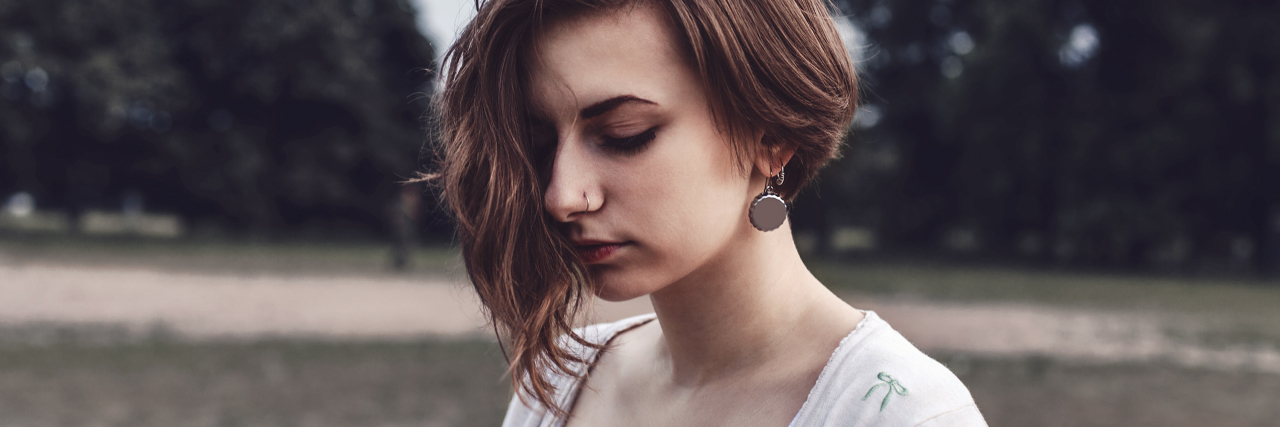The Unexpected Ways Grief Affected My Borderline Personality Disorder
It is often said that death is universal, but our individual experiences of it certainly are not — grief is very much subjective, and everybody goes through this emotional process in their own individual way. But grief can be even more difficult for those of us struggling with borderline personality disorder (BPD).
My grandfather recently passed away due to complications from motorbike accidents he was involved in over the past four years. He was the only constant, stable figure I’ve ever had in my life and losing him, even if it was somewhat expected, has worsened my BPD in ways I was not necessarily anticipating. After years of treatment, I thought, for the most part, I was recovered from BPD. I now see that this was a rather naïve belief to have because the likelihood that BPD will probably always create challenges at various points in my life is high.
A major symptom of BPD is a great fear of abandonment. Somebody struggling with this disorder can feel that, in real or imagined ways, loved ones are pulling away from them and therefore they act outwardly or inwardly in ways that help them cope with this loss. What greater, more permanent loss is there in life than death?
I have always struggled with a great deal of anxiety from feeling as though the people I love could be taken away from me. I have microanalyzed every aspect of our encounters, reading into every word said for signs that someone is finally fed up with me and is going to walk away for good. I have imagined ways the people I love could get hurt or sick, thought about how I would cope if they died, and mentally prepared myself for this ultimate abandonment. In fact, nothing could prepare me for the weight of grief. It weighs down on my chest like a ton of bricks, it’s omnipresence perched on my shoulder, pulling on my insides and taking me to the highest peaks of emotional and stress arousal. My anxieties have skyrocketed; at any given second, I am seeing new ways my loved ones could be hurt or killed. I am imagining how I am pushing all my friends away and how sick they must be of my emotional roller-coaster. All I can think is that if my great constant is gone,now anyone can leave.
I have felt more in control of my emotions in the past few months than I have ever felt, and I greatly credit this new control to my hard work in therapy. But I didn’t expect it to be so destabilizing. The hard work I put into recovery was not for nought, but it is certainly harder to find the motivation and the will to open up that toolbox of coping mechanisms and push myself to do self-care. I find myself at one moment in a rage, snapping at my friends and partner, irritable and finding any little reason to start an argument; and the next moment, plunging into a deep sadness from which I see no out, unable to imagine how I could ever feel anything but numbness or heartbreak. My mood swings are giving me whiplash, the back and forth causing me great distress because although I am conscious of it, I feel completely out of control.
However, I am still maintaining some degree of control. I am proud of myself, and I know my grandad would be too, because I have not slipped back into the harmful coping mechanisms that I used to engage in. I am not self-harming, I have not picked up a smoking habit again and I am not drinking to cope with my social anxiety. I am still attending to my responsibilities, such as my volunteer job and my university work, and still caring for myself by working out regularly and eating well. I have to keep reminding myself that, although I am struggling a lot, and although I am finding it hard to keep my BPD in check, I am still staying on top of my mental health in some capacity. I have not let things collapse and, even if that does happen at some point, that’s OK.
Grief is hard enough, but when you throw mental illness into the mix, grief becomes a whole lot harder. I am not going to allow my inner critic to make me feel bad about myself for this natural response to loss and I am not going to place judgments upon myself for having a mental illness. Being strong is not suppressing feelings and pretending everything is OK when it isn’t – my strength is in allowing myself to feel however I need to feel, trying to engage with my healthy coping mechanisms and trying my best to be open with my support network. I am not weak for grieving or for having BPD. I will keep reminding myself of this and I hope anybody with a mental illness who has lost somebody they love can remember that they are strong, capable and deserving of love, support and care. We all deserve to be kind to ourselves at these fragile times because grieving with BPD can feel like hell, but we must believe we are going to get through it — and I am trying to believe this myself.
We want to hear your story. Become a Mighty contributor here.
Getty image via yuryRumovsky

